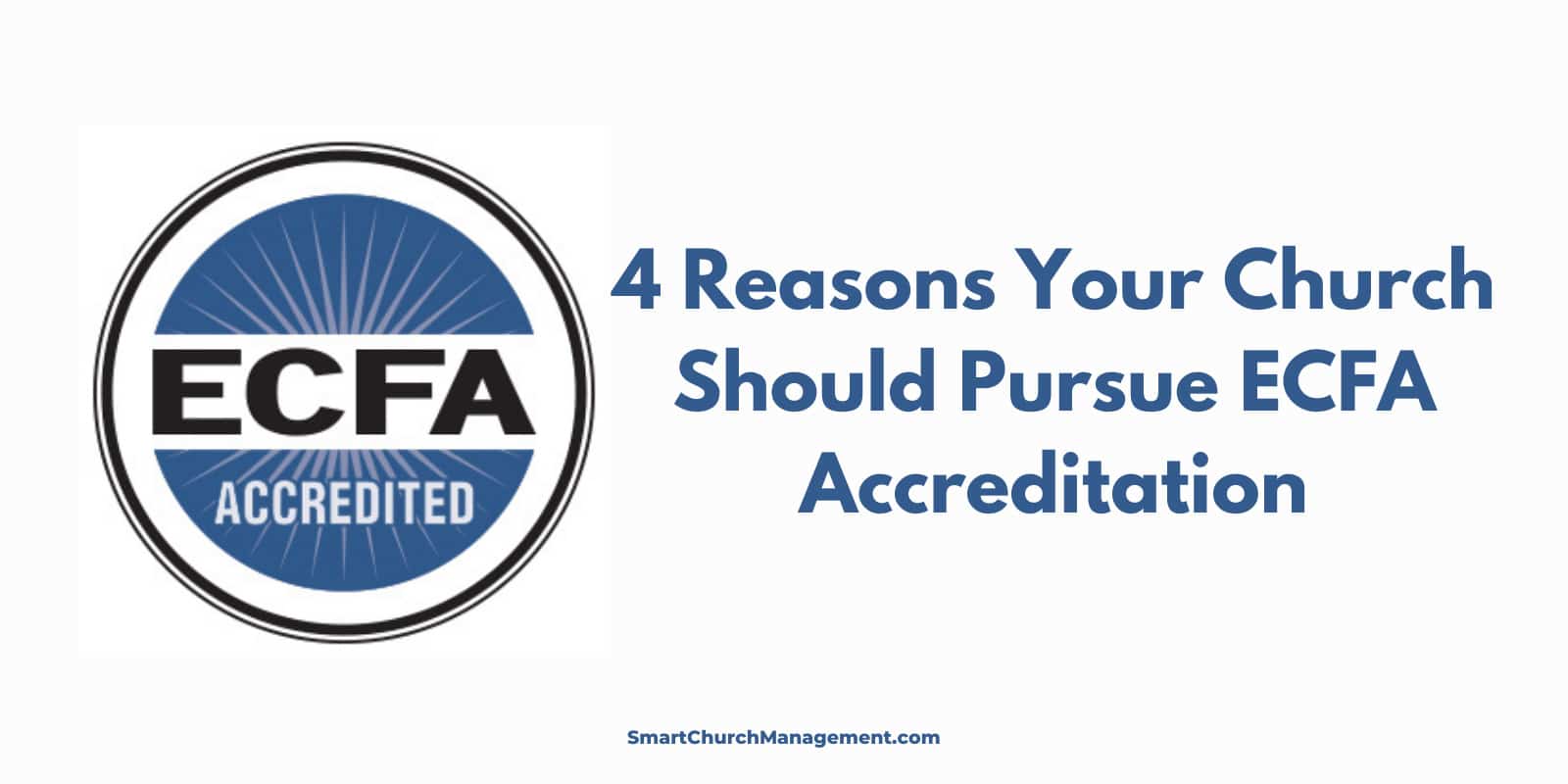Estimated reading time: 7 minutes
Churches would not exist without the generous donations of their members. These faithful donors give sacrificially to support a church mission – and expect that those dollars are managed appropriately.
Financial accountability demonstrates responsible stewardship of donor funds.
Church leaders pursue their call to lead a congregation and may have lots of training in theology and biblical principles.
These ministries have many of the same challenges as managing a business and require many of the same business processes to succeed.
However, many may not have the basic business training that is required when you manage the valuable resources that God provides – people, time, and money.
Because of this, churches need help developing systems and processes to fulfill their mission and ensure responsible stewardship of God’s money.
We Have All Heard The Stories
We have all heard stories of churches that were the victim of embezzlement, have gotten into trouble for not complying with state or federal regulations or churches that have had serious financial problems.
I believe in all of these examples, issues arise more often as a result of ignorance of the proper way of managing resources – rather than intentional neglect.
Practical Help For Churches
The good news is there are organizations available to help the local church with its financial management practices.
The Evangelical Council for Financial Accountability (ECFA) is an organization that is dedicated to helping Christian organizations earn public trust by adhering to their Seven Standards of Responsible Stewardship.
These standards focus on board governance, financial transparency, integrity in fundraising, and proper use of charity resources.
Similar to the Better Business Bureau for Businesses, ECFA requires compliance with standards that demonstrate responsible management of resources.

ECFA accreditation gives members and the public assurance that donations are managed appropriately.
These standards were developed through biblical principles and provide support and direction for Christian nonprofit organizations.
Anyone who has never been through an accreditation process may find the process a little intimidating.
However, organizations that commit the time and resources to fulfill requirements find it worthwhile knowing that donor resources are managed properly.
4 Reasons to Pursue ECFA Accreditation
1. Focus on the Mission
The accreditation process encourages and supports the articulation and documentation of the mission of the organization.
This step reminds organizations why they do what they do and encourages a continued focus on that core mission.
2. Church Management Help
The beauty of the ECFA standards is that they walk you through good governance and responsible church management practices.
The mere application process forces organizations to think through how they manage and assess their systems, processes, and documentation.
All of which helps to ensure a focus on the core mission of the organization.
3. Accountability
Organizations that comply with the standards will naturally result in accountability because it uses objective outsiders to help ensure strong governance and business practices.
Maintaining the accreditation forces accountability by continually demonstrating responsible stewardship and keeps organizations on track through documentation of practice.
4. Credibility
Organizations go through the accreditation process and follow the standards of accountability.
This process demonstrates responsible management practices, transparency, and disclosure, which translates into credibility with members, donors, and the general public.
Placing the ECFA seal on member websites and other marketing material gives donors confidence in giving.
Accreditation In Business Is Common
When I worked in health care, we went through Joint Commission accreditation every three years.
This accreditation process ensures that hospitals and like organizations provide safe and quality clinical care.
The process is an exercise of reviewing policies and procedures – as compared to practice.
This exercise helps to ensure that day-to-day practices are consistent with standard protocol.
Basically, ensuring that the hospital does what it said it would do to ensure good patient care.
Hospitals that don’t spend the time or energy to go through the Joint Commission accreditation process have the disadvantage of not policing their practices – which can ultimately affect the quality of clinical care.
Knowing what I know, I would not go to a hospital that does not have Joint Commission accreditation because there is no objective oversight process for ensuring quality patient care.
In the same way, having ECFA accreditation for your church or other Christian nonprofit provides donors with the assurance that the organization has an effective governance and management process to ensure good stewardship of funds.
ECFA Standards
Standard 1 -Doctrinal Issues
“Every organization shall subscribe to a written statement of faith clearly affirming a commitment to the evangelical Christian faith, or shall otherwise demonstrate such commitment, and shall operate in accordance with biblical truths and practices.” View detail of this standard here.
Standard 2 – Governance
“Every organization shall be governed by a responsible board of not less than five individuals, a majority of whom shall be independent, who shall meet at least semiannually to establish policy and review its accomplishments.” View detail of this standard here.
Standard 3 – Financial Oversight
“Every organization shall prepare complete and accurate financial statements. The board or a committee consisting of a majority of independent members shall approve the engagement of an independent certified public accountant, review the annual financial statements, and maintain appropriate communication with the independent certified public accountant. The board shall be apprised of any material weaknesses in internal control or other significant risks.” See details of the standard here.
Standard 4 – Use of Resources and Compliance with Laws
“Every organization shall exercise the appropriate management and controls necessary to provide reasonable assurance that all of the organization’s operations are carried out and resources are used in a responsible manner and in conformity with applicable laws and regulations, such conformity taking into account biblical mandates.” See details of this standard here.
Standard 5 – Transparency
“Every organization shall provide a copy of its current financial statements upon written request and shall provide other disclosures as the law may require. The financial statements required to comply with Standard 3 must be disclosed under this standard.
An organization must provide a report, upon written request, including financial information on any specific project for which it sought or is seeking gifts.” See details of this standard here.
Standard 6 – Compensation Setting and Related Party Transactions
“Every organization shall set the compensation of its top leader and address related-party transactions in a manner that demonstrates integrity and propriety in conformity with ECFA’s Policy for Excellence in Compensation-Setting and Related-Party Transactions.’ See details of this standard here.
Standard 7 – Truthfulness in Communications
In securing charitable gifts, all representations of fact, descriptions of the financial condition of the organization, or narratives about events must be current, complete, and accurate. References to past activities or events must be appropriately dated. There must be no material omissions or exaggerations of fact, use of misleading photographs, or any other communication that would tend to create a false impression or misunderstanding. See details of this standard here.
Public Trust Is Important
Taking the time and energy to achieve accreditation is a great way to earn the public trust and confidence. And this trust in financial stewardship will provide donors the confidence that their giving will be used to further the mission.
ECFA also has some great book resources, Church and Nonprofit Tax and Financial Guide and Minister’s Tax and Financial Guide. Both books are easy reads with lots of valuable information that can only help you and your organization.
Has your church taken a step toward ECFA Accreditation?
Enroll in our course and learn practical ways to manage your church operations.



